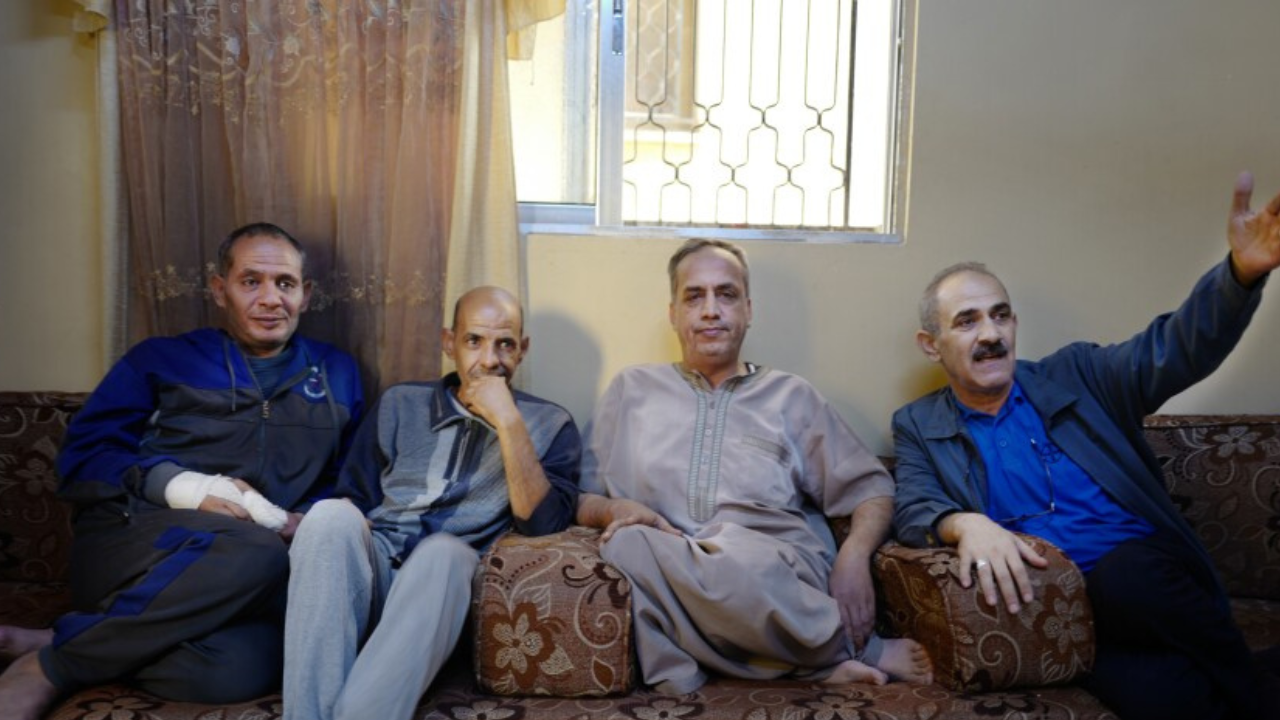Heading farther into a neighborhood where many Palestinians from Gaza have relocated, Musri is accompanied by Saleh Nakhleen, the chief of logistics for the camp’s governing committee. About 20,000 of Hitten’s 90,000 inhabitants live in this particular area. Nakhleen makes it clear that none of them are refugees from the current war; many came after earlier upheavals, such as the 1948 Nakba, while others were born here.

But this topic is very complicated for the people we saw in Hitten camp, one of Jordan’s 10 UN-supported refugee camps. The largest population of any country is the two million Palestinians who are officially registered
Table of Contents
Life in Hitten Exploring Home and Heartache Amidst Palestinian Despair in Gaza Conflict”
Many people have lived most of their lives, if not all of them, in Hitten, which is northeast of Amman. However, the Palestinian territories—Gaza or the West Bank—are the most often mentioned answers when people are asked where they call home.We went there at the beginning of November to try to grasp their worries in light of the ongoing conflict and bloodshed in far-flung but closely related locations.
Inside Hitten Beyond the Camp Facade to a Vibrant Palestinian Community
As we enter Hitten as foreign journalists with authorization, the first thing that strikes us is how permanent it is. Though it’s called a “camp,” it seems more like a permanent community with concrete buildings, well-established neighborhoods with mosques, winding streets, busy businesses, and a colorful vegetable market.
Shopping in Hitten Perspectives of Home and Tragedy Amidst Palestinian Realities
Summers and his eight-year-old daughter are seen shopping at this particular market. He was born in Amman, but he has lived in this camp for a long time; he is a Palestinian from the West Bank. But an elderly woman interrupts us in the middle of our talk, telling us how entire families are being wiped out in Gaza and how little help there is, even from other Arabs.
Through an interpreter, Musri says, “We’re furious because innocent children are being massacred.” “Hospitals have come under attack. There has been a slaughter, and the camp is deeply angry.”
Voices from Hitten Perspectives on America’s Role Amid Palestinian Disappointment
An old man in a typical red and white keffiyeh walks toward us as Musri and I travel. After we confirm that we are Americans, Abu Emad Al Din declares outright that America is the enemy but agrees to speak. His words reflect the disappointment that many people have because of the significant military assistance that the United States

backed by President Biden, and given to Israel in retaliation for Hamas’ strikes on October 7.
Born in Gaza in 1945, Al Din’s family emigrated during the Nakba when he was just three years old, and he has been living in Jordan ever since. He thinks, expressing a desire to go back to Gaza: “I wish I could go back [to Gaza] right now.” In an instant, I would depart.”
At Majid Ghawanmeh Home Conversations on Gaza’s Turmoil and Global Responses
We draw crowds as we travel. Pharmacist Majid Ghawanmeh extends an invitation for us to visit his house. Seated on flowery pillows inside, a TV shows Al Jazeera Arabic, contrasting images of the mayhem in Gaza with comments on the conflict made by U.S. Secretary of State Antony Blinken.
The adversary is not entertained nor welcomed here, claims Ghawanmeh. “Today, America is the enemy.”
A little lad, however, gives us dates and Arabic coffee in the middle of this posture. Conversations on the conflict follow, with Ghawanmeh supporting a ceasefire rather than merely a humanitarian reprieve. Due to his wife’s Gazan ancestry, he is closely linked to the war.
I never imagined a democratic country would oppose a ceasefire, allowing the killing of civilians,” Ghawanmeh said. “A halt for humanitarian purposes? The Israeli military can use this opportunity to reorganize and plan.”

Beside Ghawanmeh, Maher Rashaideh worries about not being able to go back because of the fighting that is still going on while he is in the camp from Gaza. His children are still in Gaza, and his only worry is getting to them through the broken lines of contact.
“I ask, ‘Are you safe?’ when I finally get through to someone. Be careful. As she recounts, Rashaideh illustrates the anguish experienced by people who are cut off from their loved ones during a crisis.


1 thought on “Voices from a Palestinian Camp: Despair for Gaza and Frustration Towards America””